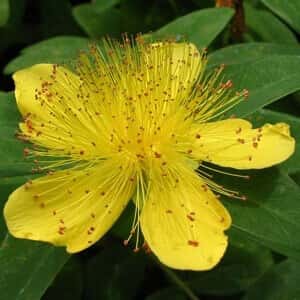
Modern medicine has shunned its past. There was a time when medical students, nursing students and pharmacy students were taught about herbal medicines. That’s because many of the drugs they prescribed or dispensed originated from natural sources. It would have been unthinkable for health professionals to graduate without some understanding of these treatment. That has totally changed!
Imagine running a cooking school but not teaching the student chefs anything about dessert. You might well argue that sweets are not good for people, but your graduates would have a hard time finding work. Restaurants know that people eat dessert whether it’s good for them or not.
Schools that teach doctors, nurses and pharmacists are a lot less pragmatic. Most refuse to recognize herbs as an important part of the curriculum. As a result, these health professionals often know very little about the botanical medicines their patients are taking.
Medical Skeptics Doubt the Value of Herbal Medicines:
Health professionals have been told directly and by innuendo that herbs and dietary supplements are marginal at best and snake oil at worst. They have received virtually no education on potential uses, side effects or interactions with standard pharmaceuticals.
The FDA is equally negative on the use of plant-based medicines. The agency is quick to publicize any misadventure with herbs, despite the fact that many more people are injured or killed each year by prescription drugs.
The medical community has been led to believe that research on herbs is not up to the rigorous standards used for synthetic pharmaceuticals. But even when reputable scientists publish good research on herbal medicines, it is frequently overlooked.
St. John’n Wort:
One example is St. John’s wort (SJW). Although this herb has been prescribed frequently by physicians in Germany, their American counterparts look down their noses at this natural product.
A randomized double-blind study published in the British Medical Journal (Dec. 11, 1999) established that St. John’s wort is significantly better than placebo and as effective as the conventional antidepressant imipramine in relieving symptoms of depression. Fewer patients taking the herbal medicine experienced side effects: 22 percent of those on St. John’s wort compared to 46 percent of those on imipramine and 19 percent of those receiving placebo.
A more recent review of St. John’s wort “for major depressive disorder,” was published in the journal Systematic Reviews (Sept. 2, 2016). The authors reviewed 35 studies involving 6,993 patients. The conclusion:
“SJW monotherapy for mild and moderate depression is superior to placebo in improving depression symptoms and not significantly different from antidepressant medication.”
The Dangers of St. Joh’s Wort:
More than 20 previous clinical studies have demonstrated the effectiveness of this herb. Yet few American physicians are aware of the research or recommend this product to their patients. Nor do they know that St. John’s wort may interact unfavorably with sunlight. This herb can harm the eye when it is exposed to ultraviolet light. Here is a link to more information about this adverse reaction:
St. John’s Wort Can Lift Mood, but May Damage Eyes
Many health professionals may not realize that SJW can interact with prescription medicines such as digoxin (Lanoxin), olanzapine (Zyprexa) and certain antidepressants as well as oral contraceptives.
The Head-In-The-Sand Problem:
By ignoring what their patients are taking, doctors and pharmacists discourage open dialog. Many patients are capable of reading body language that suggests herbs and dietary supplements are not to be discussed. This means that people may get into trouble with herb-drug interactions when taking herbal medicines in conjunction with their regular pill regimen.
To protect their patients, doctors, nurses and pharmacists need up-to-date information on indications, dosing, side effects and interactions of herbal medications. One place to find these data is in our herb library. The entries are written in language both health professionals and consumers can understand.
Given the incredible popularity of dietary supplements and natural products, it is time for professional schools to take them seriously. And consumers need to do their own homework to use such products safely.
Share your own story about using plant-based treatments for healing. Have you ever tried aloe vera gel, plantain, thyme, rosemary or turmeric? We’d love to hear about your experience.
Revised: Joe Graedon, 10/13/16

